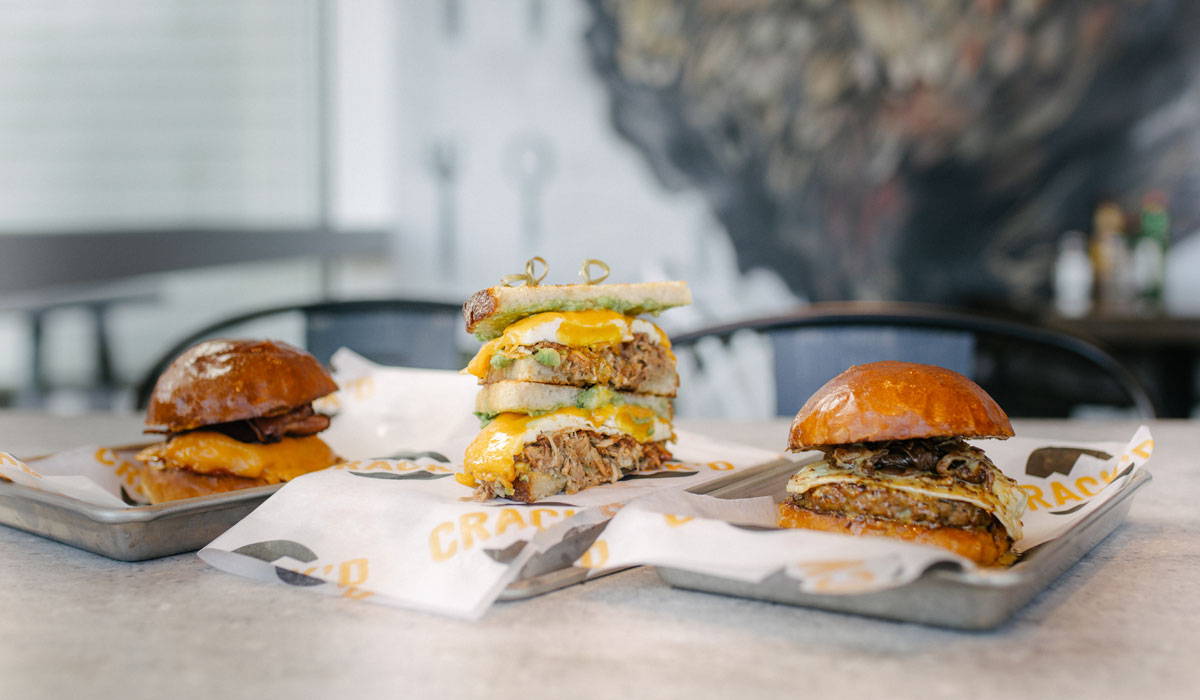For the year and a half before he opened Crack’d Kitchen and Coffee in North Andover, Massachusetts, Danny Azzarello worked on his business plan. By the time he opened the doors on the breakfast concept last March, the plan totaled 27 pages.
“It covers everything, from who we are to what we want to do, vision, market strategy, financials, projections, growth plan, demographics,” he says.
Many operators fail to realize the crucial importance of the business plan, and it’s easy to skip taking the time to write one. Without a plan, it’s hard to know what a brand stands for: The document should round up all of the basic ideas and goals behind a concept, compiling them into one brand manifesto.
In addition to the basic ideas underpinning the restaurant, a good business plan also includes the input of others, says Saleem S. Khatri, CEO of Lavu, a mobile POS provider. He recommends slowing down and seeking out industry experts, fellow restaurateurs, financial institutions, and even family and friends at the start of the writing process, and says to avoid getting caught up in the rush of excitement that opening a concept can bring. “You need to practice due diligence,” he says.
To get his plan started, Azzarello used a website called Slidebean.com, which provided templates and prompts. He used these as inspiration and says most of the writing process actually came down to thinking—brainstorming all of his ideas on a whiteboard and then adding to the final plan only the best ideas from the board. He tried to focus on one section or subject in the plan at a time. Otherwise, he says, it was too overwhelming.
In the end, the plan comes down to an individual brand’s identity and strategy.
“If you can convey the uniqueness of your idea while providing actionable data on how you’ll make that idea a reality, you’ll have a great restaurant business plan,” Khatri says.
The most important part of any brand is understanding the cash flow. Operators are in this business to make money, and they must know how they will sell their product, what customers will be reached, and how they will bring in those people.
Conversely, operators must also understand expenses. Khatri says to consider what cash you need now versus expenses later on, making sure that you have ways to make up for cash shortfall in case of emergency. It’s important to have a handle on not only how much cash is needed at the start of the operation, but also how much will be needed in three months, six months, and beyond.
To figure out cash flow, Azzarello calculated his monthly operating expenses, then how much he needed to cover those and make a profit. He says that once he opened, he found he was taking in almost $40,000 a week—around $32,000 more than he projected. Thanks to his detailed plan, he was able to immediately make adjustments on ordering and staffing to account for the added revenues.
Sofia Deleon’s business plan for El Merkury, a Guatemalan fast casual in Philadelphia, runs 24 pages. She worked on it for one to three hours every day for a year.
To kickstart the process, Deleon meshed a template she had from business school with an online restaurant plan. She used her ideal concept to fuel the document, including visuals like colors, furniture, and other restaurants around the world. These details added an inspirational element to her plan, expanding on the traditional sections that deal with nuts and bolts like cash flow and product.
While she included details on training in her plan, she says she wishes she’d spent more time on creating stronger reference material that dealt with allocating enough time and money for training new hires. She also says she should have included more information on adequate systems to follow, establishing a guideline for employees or a potential manager to follow when Deleon’s not at the restaurant.
For both operators, the business plan helped make vague ideas concrete. Azzarello included his passions, goals, and reasons for being in the industry in the first place in the document, helping to solidify the pillars of his concept. For Deleon, the business plan fleshed out her restaurant for the first time.
“If I didn’t write things down, then all my ideas would have just been scattered in my head,” she says. “Putting my vision in writing gave [El Merkury] life—it made it real.”













